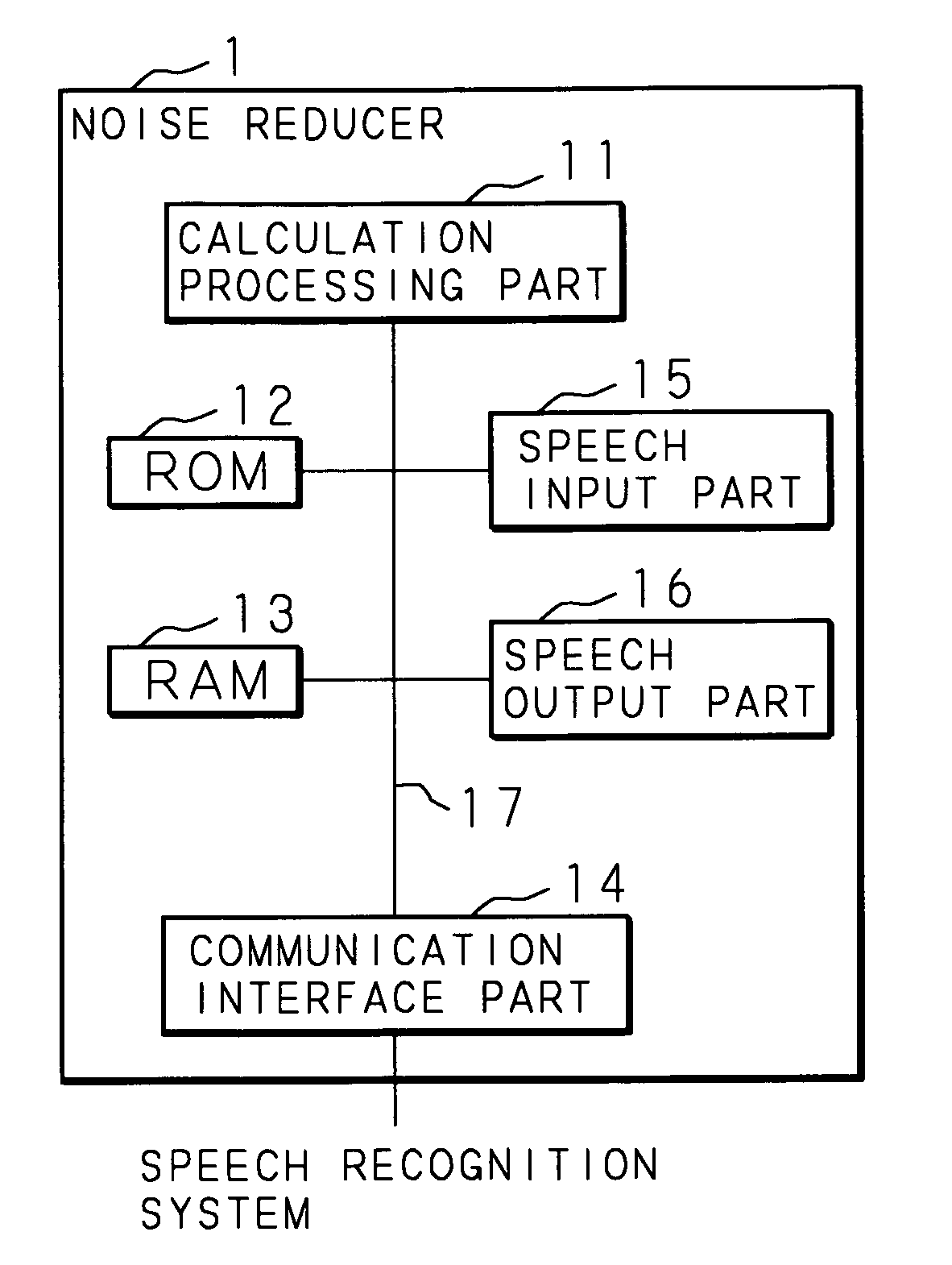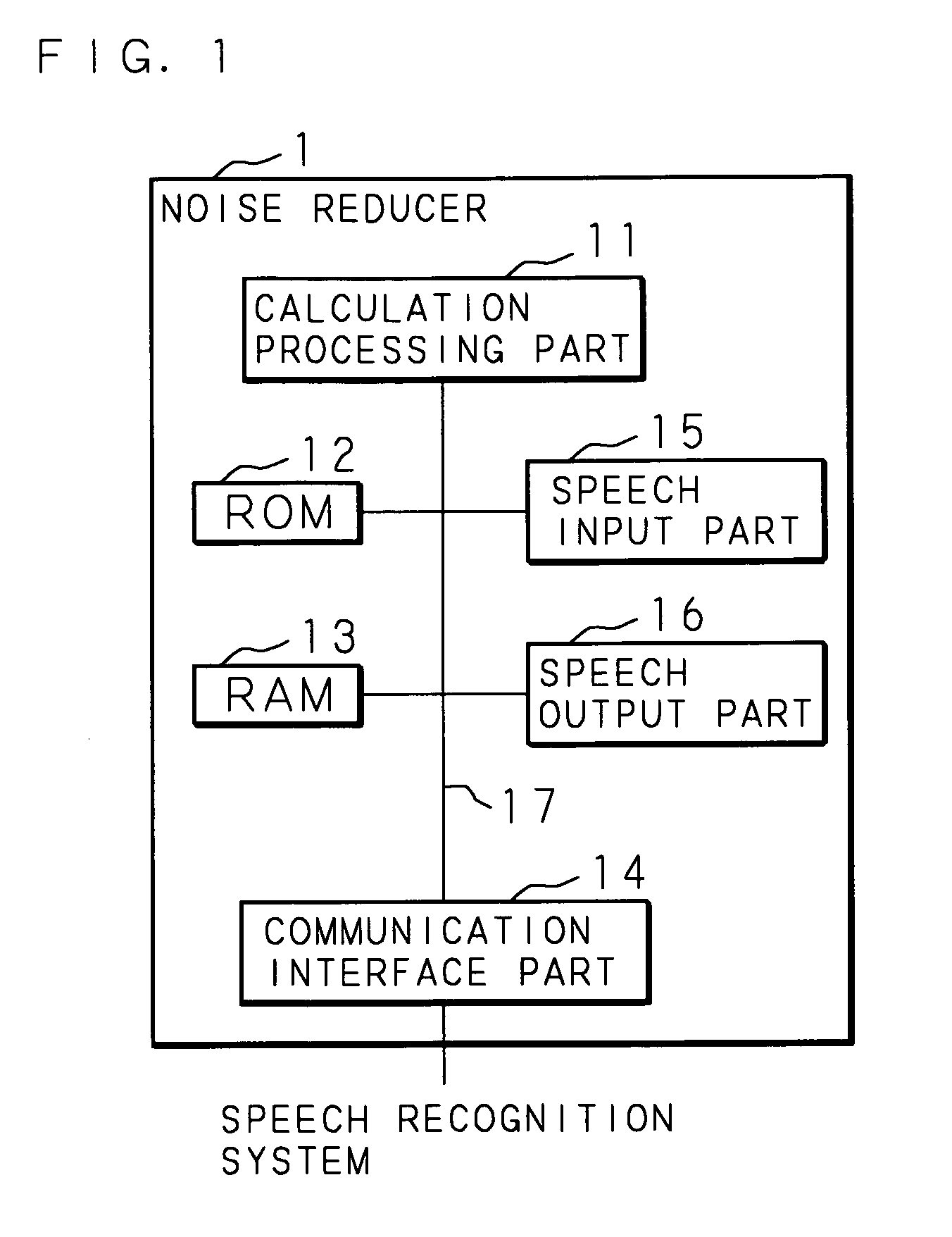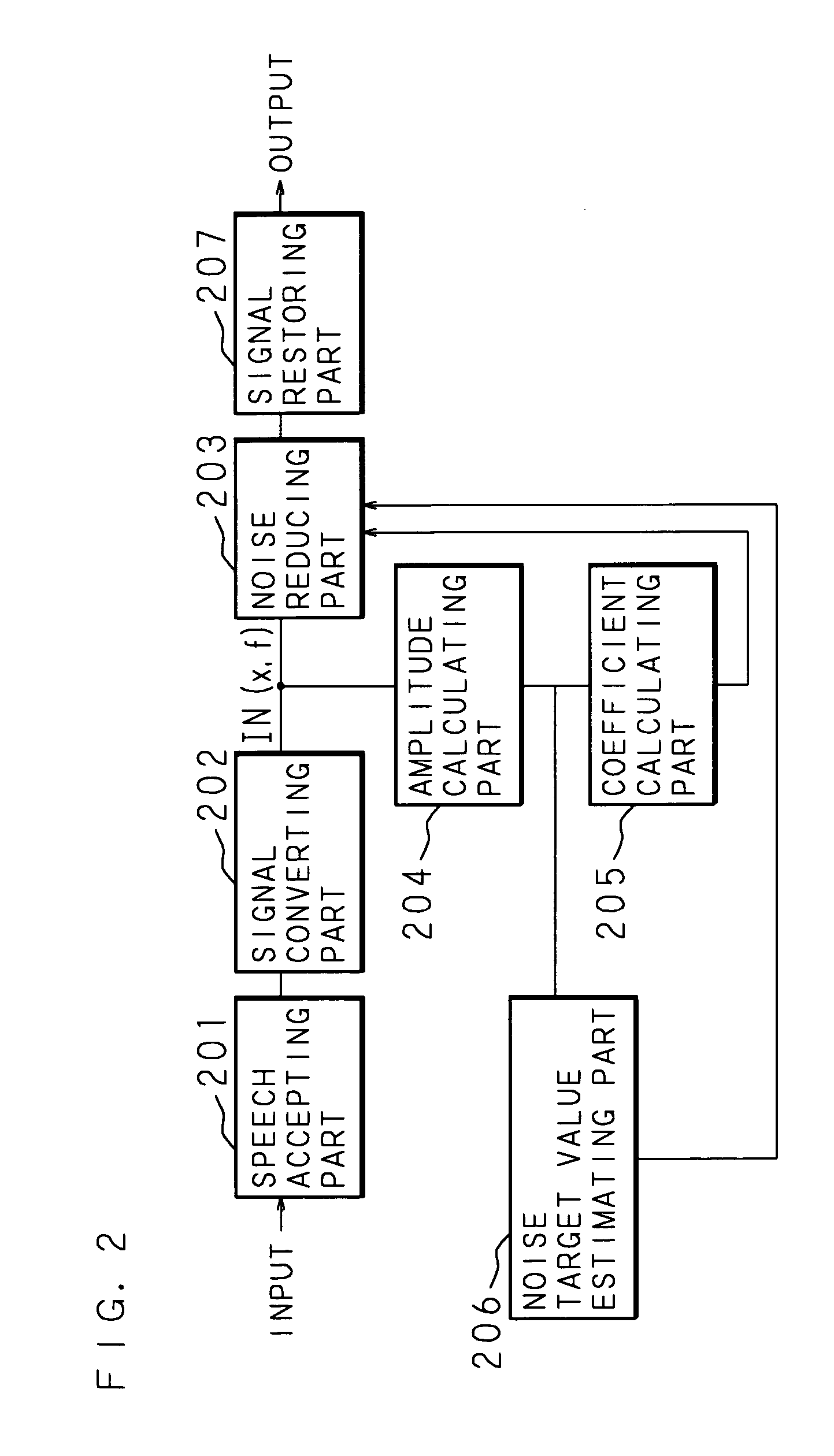Noise reducer, noise reducing method, and recording medium
a noise reduction and noise reduction technology, applied in the field of noise reduction, can solve the problems of speech signal and remaining noise or the like distorted, and achieve the effect of reducing nois
- Summary
- Abstract
- Description
- Claims
- Application Information
AI Technical Summary
Benefits of technology
Problems solved by technology
Method used
Image
Examples
first embodiment
[0038] Hereinafter, the present invention will be described with reference to the drawings showing the embodiments thereof. FIG. 1 is a block diagram showing the structure of a computer realizing a noise reducer according to an embodiment of the present invention. The computer according to a noise reducer 1 according to the embodiment of the present invention is at least provided with a calculation processing part 11 such as a CPU and a DSP, a ROM 12, a RAM 13, a communication interface part 14 capable of make the data communication with respect to the outer computer, a speech input part 15 for accepting the input of the speech, and a speech output part 16 for outputting the voice of which noise is reduced.
[0039] The calculation processing part 11 is connected to every part of the above-described hardware of the noise reducer 1 via an inner bus 17 and may control every part of the above-described hardware and may execute various software functions in accordance with a processing pr...
PUM
 Login to View More
Login to View More Abstract
Description
Claims
Application Information
 Login to View More
Login to View More - R&D
- Intellectual Property
- Life Sciences
- Materials
- Tech Scout
- Unparalleled Data Quality
- Higher Quality Content
- 60% Fewer Hallucinations
Browse by: Latest US Patents, China's latest patents, Technical Efficacy Thesaurus, Application Domain, Technology Topic, Popular Technical Reports.
© 2025 PatSnap. All rights reserved.Legal|Privacy policy|Modern Slavery Act Transparency Statement|Sitemap|About US| Contact US: help@patsnap.com



